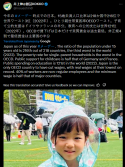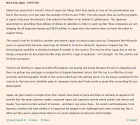Meiji Japan was actually advancing slower relative to the west than China is today.500 years is pushing it. It's only in the 1800s Japan really became something after the Meiji era.
In the Sengoku Jidai which is supposed to be the warring states/three kingdom period of Japan, the first guy to unite the country was Oda Nobunaga. In the time where samurai were at their prime, Oda said fuk that, I'm gonna use peasants and arm them with Portuguese guns or something to kill all the Samurai. And he did which shows that the great unifier of Japan did it by not relying on native Japan stuff. That kinda shows why Japan wasn't much before they modernized using western concepts.
To be fair China is doing the same right now using western stuff to advance. But isn't that exactly why Japan is in a lot of pain now? Before only they modernized in Asia. But now their neighbours have also done so, what advantage does Japan have now?
In 1935 Imperial Japan's nominal GDP per capita was ~12-14% that of the US ($64 vs. $540) with 2/3 the population (105 million vs. 132 million). And that was only ethnic Japanese. Ethnic Koreans in the empire had way lower GDP per capita.
So their overall GDP was something like 1/10 that of the US.
Imperial Japan way overestimated themselves. Invading a country with 4x the population and equal GDP (ROC had 400 M and $18 GDP per capita) was extremely dumb. And then starting a war with a country with literally 10x the GDP, at the same time, is even dumber.




